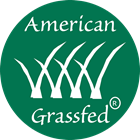By Claudia Watson
Life at Hilltop Angus Farm was recently the subject of a short documentary produced by the Carolina Photojournalism Workshop at the University of North Carolina (UNC) School of Journalism and Mass Communication. Dale and Sharon Thompson, regular vendors at the Moore County Farmers Market, own the 200-acre grass-fed beef farm, which is located in Mt. Gilead.
“We believe that there’s a revival going on in eating fresh and healthy,” says Dale Thompson. “A lot of people want to know where their food comes from and how the animals are raised and treated. In just a few minutes, this documentary gives an insight into how our grass fed beef is produced.”
The documentary, filmed earlier this summer by photojournalist and student Rebecca Putterman, was one of workshop’s twelve assignments in Stanly and Montgomery counties. The workshop’s students travel to different parts of North Carolina and record life in the state.
Putterman, a graduating senior at UNC-Chapel Hill, spent a week shadowing Thompson as he went about his daily routine of caring for his farm and the herd of nearly 200 grass-fed Black Angus cattle that forage open pastures.
“Dale and Sharon have a tremendous commitment to producing healthy grass fed beef and are passionate about keeping this a family farm for future generations,” says Putterman. “It’s such a compelling story and it was a great privilege to be part of their family for that week and to share their dream and goals for their farm.”
The Thompsons said that being the focus of the documentary was very humbling. They noted that Putterman adapted to the farm life well in spite of the record-breaking heat and long days. “She didn’t complain about anything, even when she stepped in a pile of used grass,” joked Thompson.
The Thompsons made an effort to help Putterman get the feel for life on the farm. “After the first few days I was not sure that she had really connected. Then it happened, I turned a group of mother cows out on some new grass and all you could hear were the cows eating grass, and she connected.”
Small farm survival
Thompson says it is important for consumers to have that type of personal connection with their food supply, “It allows them to understand that they are getting a high-quality, healthy product, produced in a sustainable manner,” he says. “And that understanding is critical to the survival of the small farm way of life.”
The dramatic expansion of industrial agriculture has made it increasingly difficult for small family farmers in the U.S. to stay in business. Though eighty percent of the farms in the U.S. are small farms, these farms are being forced out of business at an alarming rate.
According to the USDA, between 2005 and 2006, the U.S. lost 8,900 farms (a little more than one farm per hour). As a result, there are now nearly five million fewer farms in the U.S. than there were in the 1930s. Of the two million remaining farms, only 565,000 are family operations.
When established family farms are shut down, they are not being replaced by new farms and young farmers. Very few young people become farmers today, and the average age of the principal farm operator in the U.S. is 55.3 years old. Only six percent of all farmers are under the age of 35.
Thompson, who is the third generation to farm his family’s land, says the large industrial farms have had a tremendous effect on farming. “The industrial farms come in and rent the small farm’s land. As the farmer gets older, they buy the land up; it’s like a big wheel you can’t stop. We’re hoping to go a different direction and save this farm.”
Responsible stewards
Hilltop Angus Farm was established by Thompson’s father in 1956 and has been a dairy farm, breeding farm and then a cow-calf operation that sold feeder calves to the conventional market.
That changed in 2009, when Thompson and his sons, Justin and Cory, began looking for new opportunities for the farm. Justin attended a conference on direct marketing and they later attended a conference on grassfed beef, meeting other farmers who had established successful operations.
Now, Hilltop Angus Farm it is one of an increasing number of small family farms in the U.S. that are using sustainable farming practices to breed, raise and finish grassfed beef and supply it to niche markets.
“I’m basically a grass farmer, not a beef farmer, I manage the grass, the cows take care of the rest of it,” says Thompson. “As long as I have grass, rain, sunshine and the good Lord looking after me, we’re in good shape.
Thompson says he raises cattle the way his grandfather did, “They’re eating natural, healthy food, the way they were meant to eat.”
New opportunities
More and more of farmers are now selling their products directly to the public through Community Supported Agriculture (CSA), cooperatives, u-picks, farm stands, farmers markets and direct marketing.
In 2010, the Thompsons started pulling their custom trailer outfitted with freezers stocked with their meat to the local Moore County Farmers Markets and to a monthly market in Wilmington.
“It is very gratifying to know and meet so many people who appreciate what we do on our family farm. This documentary is just a little more proof of the revival that so many small family farms are experiencing.”
Thompson says they have a special tie with their land, “We’d like to see the family stay here, have roots, where their grandfathers and great-grandfathers were once farming. It’s a peaceful place.”
The documentary may be viewed at Hilltop Angus Grassfed.
Claudia Watson is a freelance writer and may be contacted at cwatson87@nc.rr.com.
